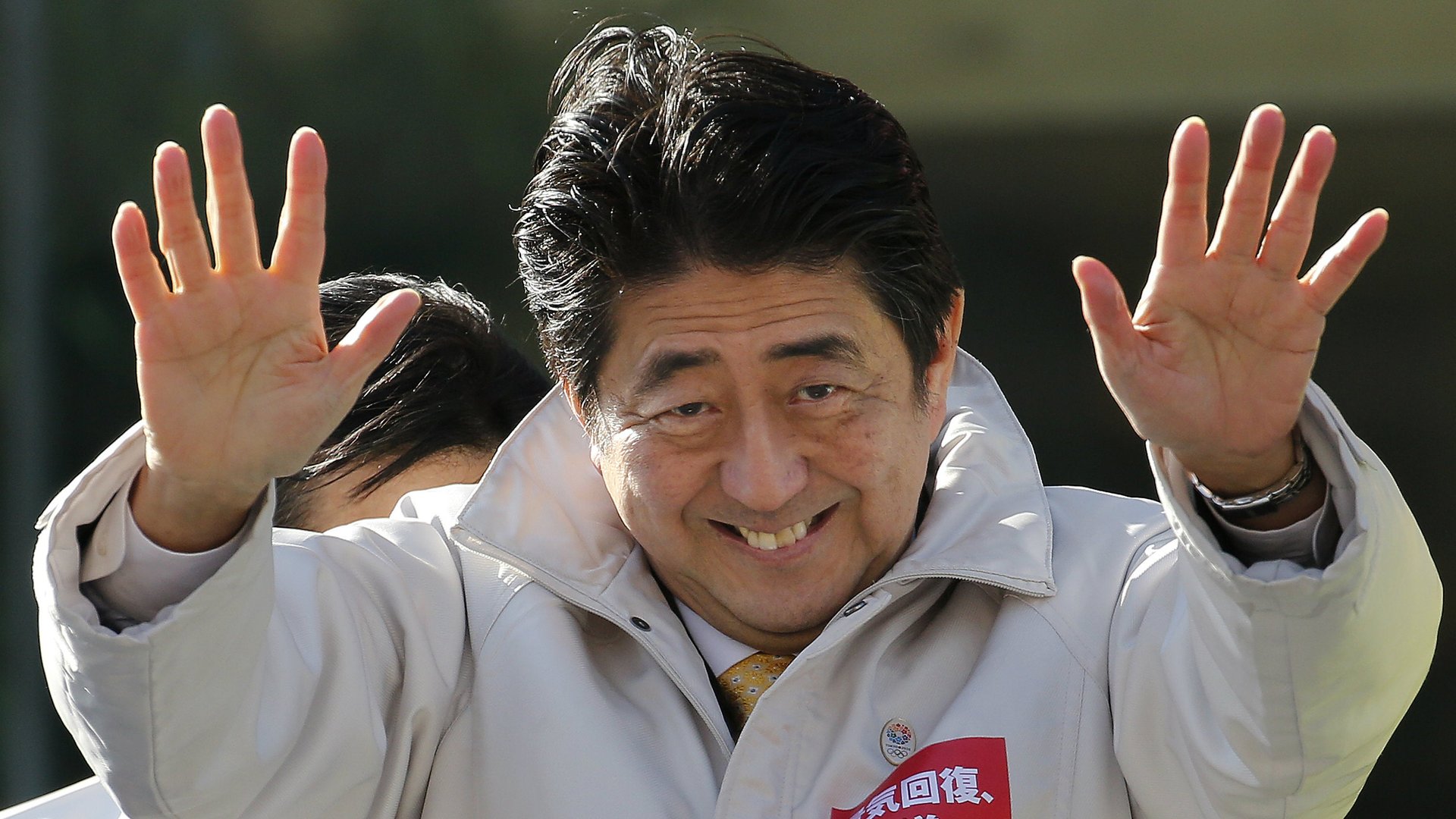Why you should actually care about this weekend’s pre-ordained Japanese election
TOKYO—Democratic elections are not supposed to have pre-determined outcomes, yet Japan’s Sunday election is guaranteed to keep prime minister Shinzo Abe in power. But there is more at stake than a rubber-stamp victory for the creator of Abenomics: the results will impact Japan’s political and economic climate for years to come.


TOKYO—Democratic elections are not supposed to have pre-determined outcomes, yet Japan’s Sunday election is guaranteed to keep prime minister Shinzo Abe in power. But there is more at stake than a rubber-stamp victory for the creator of Abenomics: the results will impact Japan’s political and economic climate for years to come.
An election about…something?
Many in Japan do not know what they are supposed to be voting for. Abe’s government, seeking approval for its controversial economic policies, has insisted the election—which it is numerically assured of winning—is a referendum on the economy. Specifically, on his decision last month to scrap an October 2015 sales tax hike, after gross domestic product figures suggested the country had unexpectedly slipped into a recession due to weak consumer, business spending, and an earlier sales tax hike. His Liberal Democratic Party is campaigning under the rather grim slogan “to revive the economy, there is no other way.”
An Asahi newspaper poll found that 60% of voters disapprove of his decision to call the snap election. Even if that is the case, there is essentially no alternative to an Abe government. The opposition Democratic Party of Japan is only fielding 198 candidates, compared with the LDP’s 352. There are 475 seats up for grabs. It is impossible for any other party to take a majority.
Japan is suffering from election fatigue
The country has had three national votes since the end of 2012. Voters are also being asked to cast ballots in local elections next year. The cluster of elections is especially a challenge to minor parties that rely on voter activism.
Timing is everything
“It is clear that his decision to call an election is based on the political calculation that he has a better chance for a victory now rather than later,” the Asahi wrote in an editorial.
The vote, however, may be the last for four years in Japan’s more powerful lower parliament, and it will give the prime minister some much-needed breathing space after a very difficult autumn. In September, a reshuffle brought five women to his cabinet, which was touted as evidence that his policies were helping to bring more women into the workplace. But two of the women quickly resigned because of financial scandals, and those who remained have been accused of being sympathetic to Japan’s far right. Abe is still trying to find a balance between a cabinet that is favorable to his conservative base but also satisfies those looking for a more open Japan.
The country is grappling with more than just Abenomics
The prime minister’s plan for a new base in Okinawa Prefecture have been rejected by voters there. Other challenges facing the government include its quest to revive nuclear power, still contentious after the Fukushima disaster, but essential to reversing Japan’s trade deficit. Abe’s government also just passed a new national security law that punishes the leaking of state secrets with jail sentences of up to 10 years. Critics say it is overly broad and could be used to muzzle the press.
In short, Abe is sending Japan in a contentious direction; gaining more time with a convincing election win will give him more political capital.
And there’s still the economy, stupid
The prime minister, however, insists this vote is about the economy. And if his previous term in office was defined by anything, it is the huge amount of money the governent is pumping into the economy by buying bonds and other financial instruments. Now comes the more difficult task of backing up the stimulus with lasting structural reforms that fundamentally change the way the Japanese economy operates.
“Apparently, Abe is starting to realize that his grand plan may not work,” economist Nouriel Roubini’s Edge team wrote in a recent report. One problem is that his government itself is divided; Teneo Intelligence’s Tobias Harris sees Abe’s coming problem as “resistance to his government’s initiatives from the bureaucracy, the LDP’s backbenches, and [its coalition partner] Komeito.”
If that resistance rises, Abe’s true test will comes in September, when his party votes for a leader. If it chooses someone else, Japan may see a new prime minister. But at least the public won’t be dragged out to the polls again for that vote.